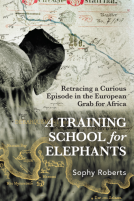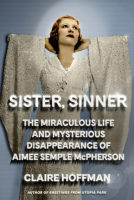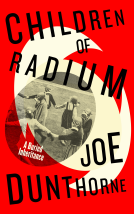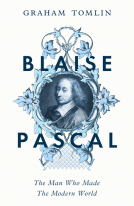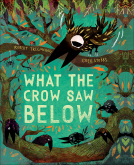
H. G. Wells The Dover Reader
by H. G. Wells
This title was previously available on NetGalley and is now archived.
Send NetGalley books directly to your Kindle or Kindle app
1
To read on a Kindle or Kindle app, please add kindle@netgalley.com as an approved email address to receive files in your Amazon account. Click here for step-by-step instructions.
2
Also find your Kindle email address within your Amazon account, and enter it here.
Pub Date Feb 17 2016 | Archive Date May 11 2016
Description
This anthology offers readers complete and unabridged versions of Wells's most influential novels: The War of the Worlds, The Time Machine, The Island of Dr. Moreau, and The Invisible Man. In addition, five famous short stories include "The Country of the Blind," "The Purple Pileus," "The Crystal Egg," "The Door in the Wall," and the first tale to address bio-terrorism, "The Stolen Bacillus."
Available Editions
| EDITION | Paperback |
| ISBN | 9780486802480 |
| PRICE | $6.00 (USD) |
Featured Reviews
 Mandy J, Reviewer
Mandy J, Reviewer
A useful collection of H G Wells’ science fiction writing including some of his novels, such as The Time Machine and The War of the Worlds and a selection of his stories.
 Reviewer 298993
Reviewer 298993
I love H.G. Wells and I love this reader. It had a good amount of his books and other info. on him. It was easy to read and navigate, it was fun. 5 out of 5 stars. I would recommend it to Sci-Fi fans. Brilliant work.
 Jonathan J, Librarian
Jonathan J, Librarian
A good H. G, Wells anthology. If you like Wells, this is a good book. If you feel that too many of his endings are weak, then there'll be lots of disappointments in store!
 candace p, Reviewer
candace p, Reviewer
A great anthology of H.G. Wells. It contains his best books along with 5 of his short stories which were unknown to me but very much enjoyed. I have wanted to try one of these Dover Readers because of the great material that is included in them , many of them list informal writings among the contents. This one did not contain any of that material but I think having fiction material in the same book with Diary writings, essays, etc. is a great idea!
Published by Dover on February 17, 2016
H.G. Wells is rightly regarded as a pioneer of science fiction. The four novels/novellas collected in this edition have all been filmed, some more than once, which attests to Wells’ skill as a story-teller. As a prose stylist, Wells created rambling, ponderous sentences that require the reader to engage in a good amount of labor before reaching the end. It is nevertheless a style that tends to grow on readers, contributing to the continued popularity of his books. But Wells’ popularity is primarily due to his imaginative creation of themes that modern science fiction writers continue to embrace.
The novellas in this Dover edition are:
The Time Machine (1895) - Probably the most “literary” of Wells’ works, The Time Machine is important in the history of science fiction as one of the first widely-read time travel stories. The distant future Wells imagines, populated by above-ground Eloi and underground Morlocks, is a forerunner of novels that depict a dystopian future. The novel might best be seen as an allegory of class struggle, although scholars have blessed it with a variety of academic interpretations. The Time Machine is probably the most discussed of Wells’ works, and it might be his most popular, given the number of times it has been adapted to film, television, and comics, as well as the number of books and stories that have been derived from it or paid tribute to it.
The Island of Dr. Moreau (1896) - Wells ventured into horror with this story of a biologist who is stranded on a remote island with a doctor and a “mad scientist” whose experiments have transformed animals into man-like beasts. A forerunner of modern novels that address genetic experimentation, The Island of Dr. Moreau is notable for its exploration of the difference (and more importantly, the similarity) between man and beast.
The Invisible Man (1897) - A scientist experimenting with optics figures out how to bend light in a way that makes him invisible. While largely an adventure story, the novella has a moral lesson, as the scientist, who uses his discovery for nefarious purposes, comes to a bad end. The novella’s literary value comes from the sympathy that Wells creates for the scientist, even as Wells makes it clear that the Invisible Man is responsible for his own undoing.
War of the Worlds (1898) - One of the first popular stories to imagine contact between humans and aliens, War of the Worlds was famously adapted as a radio play that shook up the nation, and has been filmed repeatedly. In addition to working as an adventure story, the novel touches on important issues of imperialism, evolution, and religion. War of the Worlds is one of the most influential works in the history of science fiction, having inspired an entire subgenre of “alien invasion” stories, most of which (the ones in which aliens are imagined as evil lizards) are quite awful in comparison to Wells’ story.
Wells wrote some or all of these works as serials, so they overlapped a bit, but the fact that he was able to produce four of the most important works of science fiction in roughly four years is stunning. No literature class that covers science fiction would be complete without including at least one of Wells’ novels.
The Dover collection also includes five short stories of varying quality: “The Stolen Bacillus,” “The Country of the Blind,” “The Purple Pileus,” “The Crystal Egg,” and “The Door in the Wall.” They are all entertaining, but readers will get more bang for their buck from Wells’ longer works.
RECOMMENDED
 John L, Reviewer
John L, Reviewer
If nothing else, this book proves to you the author was a powerhouse of genre fiction, of the kind that the wider reading audience should be happy to pick up, not least it's not always about the science. We start with The Time Machine, which is of course a class allegory, and exploration of human growth as a species. War of the Worlds, The Invisible Man (featuring literature's biggest swing from hokum and bad Sussex accents to what can probably count, for its time, as horror) and the Island of Dr Moreau, all prove why he's been so adaptable ever since he wrote these classic novels. The short stories included here are a whimsy with a scatterbrained scientist, a moral about the blindness of devotion, a satirical look at an errant and miserly businessman, a second shop-keeper who is most reluctant to part with a crystal egg, and finally a man seeking the magical garden he found through a mysterious doorway as a child. Generally there is a theme, in works short and long, of seeking and travelling to another place – which is another way of saying Wells puts his characters on a mobile quest, which is all the more interesting for his reader. If anything that should demolish any conception of these books as being laboratory-bound, stilted scientific tomes, and out-dated ones at that. No, they're fine, and the best thing is, there are many more to choose from in other collections. This one as it stands is, indeed, a fine primer.
A great collection of the better known H.G. Wells classics; these stories feel like they've been floating around the cultural consciousness forever and it's a great gift to yourself to become familiar with the source material. These are timeless for a reason; the writing is snappy, the ideas are fresh and interesting, and the pace is breakneck. A great summer project for the reader who wants to solidify her grasp of the keystone Sci-Fi works.
Novels The Time Machine (1895) 1 The War of the Worlds (1898) 75 The Invisible Man (1897) 223 The Island of Dr. Moreau (1896) 345 Short Stories The Stolen Bacillus (1894) 451 The Country of the Blind (1904) 457 The Purple Pileus (1896) 486 The Crystal Egg (1897) 497 The Door in the Wall (1906) 513
(I received an ARC from the NETGALLEY in exchange for an honest review.)
I read the Time Machine and really enjoyed the Victorian Sci-fi novel. I have also listened to War of the Worlds and like this spookiness of it. The Island of Dr. Moreaua is not a favourite of mine. The Invisible Man is next on my list as are his shorter work.
k (My Novelesque Life)



